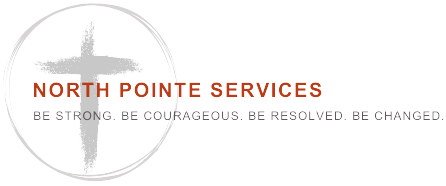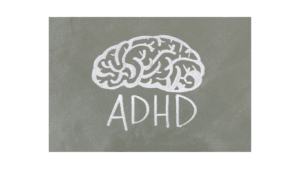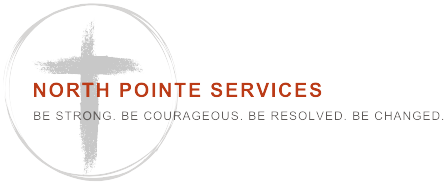When someone is in crisis—whether a child, teen, or adult—it can be hard to know what’s really happening beneath the surface. Are they facing a mental health struggle? Are they under spiritual attack? Or is it possible they are experiencing both at the same time?
As a counselor and as a believer, I’ve seen how easy it is to jump to one extreme or the other. Some assume every struggle is purely medical or psychological, while others believe every problem is demonic. The truth is usually more nuanced—and learning how to discern between mental health challenges and spiritual warfare is essential for those who want to help wisely.
Understanding Mental Health Struggles
Mental health conditions like depression, anxiety, trauma, and psychosis are real, measurable, and treatable. We live in a fallen world where bodies and brains are affected by stress, genetics, chemical imbalances, and past experiences. Scripture itself acknowledges the reality of emotional distress: Elijah’s despair (1 Kings 19), David’s laments in the Psalms, and Job’s cries of anguish all show us that suffering is part of the human condition.
A clinical diagnosis doesn’t mean someone is “weak in faith.” It simply means their mind and body need care, just like if they broke a bone or developed diabetes. Counseling, medical treatment, and community support can be God’s instruments of healing.
Recognizing Spiritual Warfare
At the same time, the Bible is clear that we live in a world with an enemy of our souls. Paul reminds us: “For our struggle is not against flesh and blood, but against the rulers, against the authorities, against the powers of this dark world and against the spiritual forces of evil in the heavenly realms” (Ephesians 6:12).
Spiritual warfare often shows up in:
- Lies and accusations about identity (“You’re worthless”).
- Patterns of destruction (addiction, self-harm, suicide ideation).
- Division and isolation (broken families, hopelessness, shame).
- Opposition to truth and peace.
These are not just “bad moods” or chemical imbalances—these are the very tactics of an enemy who wants to steal, kill, and destroy (John 10:10).
Where the Two Overlap
Here’s the key: mental health struggles and spiritual warfare are not mutually exclusive.
- A person with severe depression may also be vulnerable to lies of hopelessness.
- Someone with trauma may experience both flashbacks (psychological) and deep spiritual oppression (spiritual).
- An individual in psychosis may need medical stabilization, but they may also benefit from prayer for peace and protection.
When we separate mental health from spiritual reality, we risk giving incomplete care. But when we integrate them, we can bring both clinical wisdom and spiritual hope into the picture.
Avoiding Stigma and Extremes
One of the greatest dangers is stigma.
- If we only spiritualize: We risk shaming people who genuinely need counseling, medication, or medical care. Telling someone with bipolar disorder that they just “need more faith” can be crushing.
- If we only medicalize: We risk ignoring the spiritual dimension, leaving people vulnerable to lies, despair, and hopelessness.
Instead, we can choose a both/and approach: recognizing that God often heals through doctors, counselors, and medicine and that prayer, Scripture, and the power of the Holy Spirit are vital in breaking chains and bringing hope.
Practical Discernment: Questions to Ask
When you’re trying to discern whether something is primarily mental health, primarily spiritual, or both, consider these questions:
- What is the pattern?
- Is there a medical or psychiatric history?
- Are there clear stressors or triggers that fit known conditions (trauma, grief, sleep deprivation, substance use)?
- What is the content?
- Are there pervasive lies, accusations, or shame messages?
- Do the words or behaviors directly oppose the truth of Scripture or push the person away from hope?
- What brings relief?
- Does medication, counseling, or rest reduce symptoms?
- Does prayer, Scripture, or worship also bring peace?
- What’s the fruit?
- Does this lead toward life, peace, and connection—or toward isolation, destruction, and despair?
These questions don’t replace professional assessment, but they can help guide wise support and referral.
How Counselors Can Respond
As Christian counselors, our role is not to diagnose demons—but to care for the whole person. That means:
- Listening without judgment.
- Offering both clinical resources (therapy, psychiatry, referrals) and spiritual encouragement (prayer, Scripture, pastoral care) as appropriate.
- Respecting each client’s faith perspective while staying grounded in evidence-based practice.
- Privately, covering our work in prayer: “Lord, you know this person better than I do. Show me what they need, and let my words bring your peace.”
This is spiritual warfare in practice—not dramatic exorcisms, but the quiet, steady work of bringing light into dark places.
Encouragement for the Church and Families
If you are a pastor, parent, or friend walking with someone in crisis:
- Don’t stigmatize mental illness. Encourage professional help when needed.
- Don’t minimize the spiritual battle. Pray, speak truth, and remind them of God’s promises.
- Do stand with them. Crisis is where the enemy often whispers isolation. Be present, be patient, be hopeful.
Final Word: Equipped for the Everyday Battle
Spiritual warfare and mental health aren’t as far apart as we think. Both are part of living in a fallen world—and both require humility, discernment, and faith. The good news? God has not left us defenseless. His Word, His Spirit, and the resources He provides through community and care equip us for every battle.
We may not always be able to “make it go away,” but we can pray, support, and guide people toward both healing and hope. In every crisis, our role is to point them toward the One who knows them fully, loves them deeply, and has already overcome the darkness.
✨ At North Pointe Services, we believe in counseling that integrates both clinical excellence and faith-fueled hope. If you or someone you love is struggling, know that help is available and you don’t have to face the battle alone.








